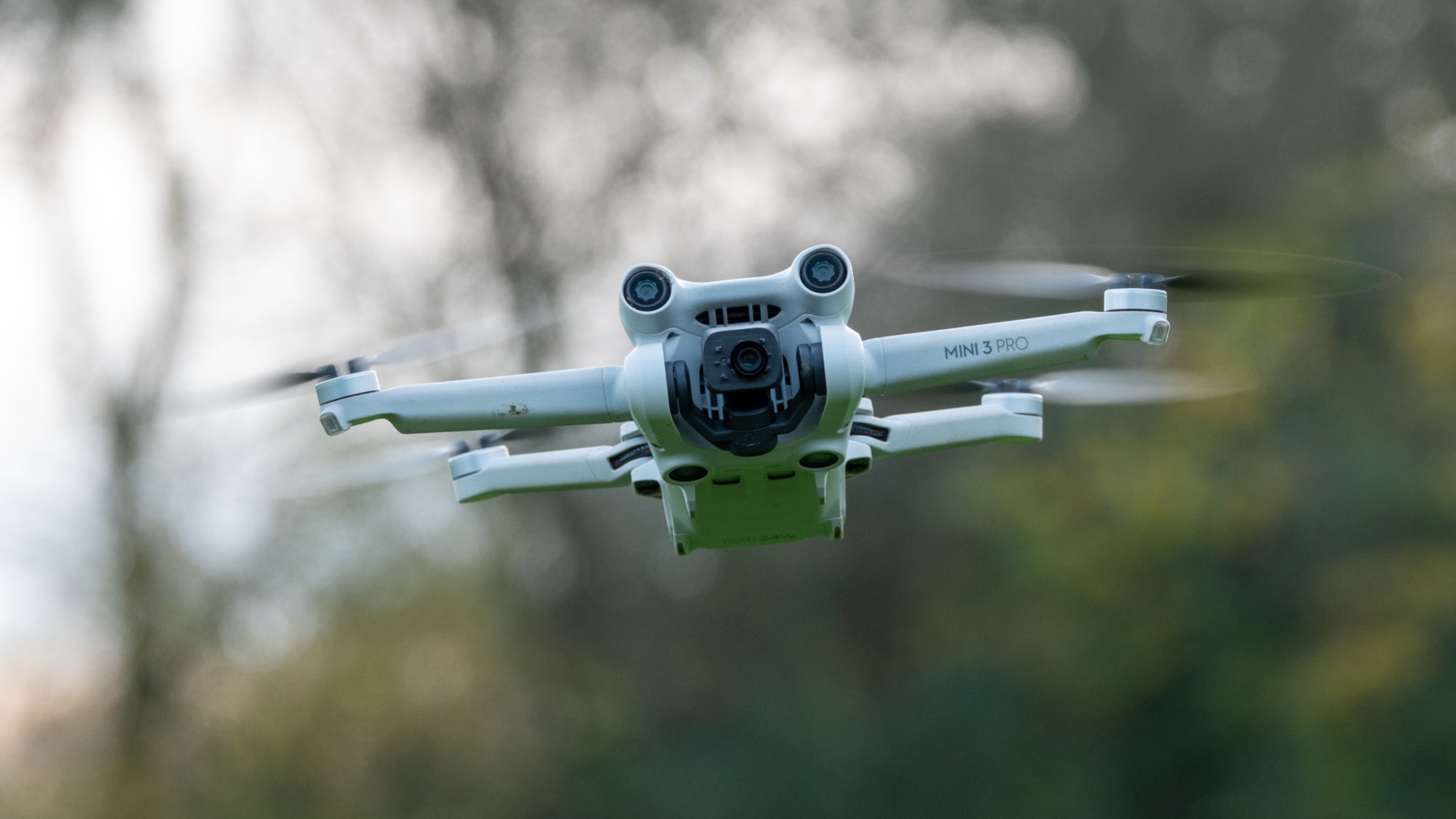US considering ban on Chinese drones as international tensions grow
The decision will ultimately be made by the incoming Trump administration


A free daily email with the biggest news stories of the day – and the best features from TheWeek.com
You are now subscribed
Your newsletter sign-up was successful
U.S. officials are considering ramping up defenses against one of China's most ubiquitous technologies: drones. The U.S. Department of Commerce has announced that it is exploring a rule that could restrict Chinese drones in the United States — or ban them entirely.
This new rule would "secure and safeguard the information and communication technology and services (ICTS) supply chain" for drones in the U.S., the Commerce Department's Bureau of Industry and Security said in a press release. The bureau believes that foreign involvement in the drone supply chain "may offer our adversaries the ability to remotely access and manipulate these devices, exposing sensitive U.S. data."
The potential new rule comes at the behest of the Biden administration. However, with President Joe Biden having less than a month left in office, the decision on the Chinese drones will ultimately be made by President-elect Donald Trump.
The Week
Escape your echo chamber. Get the facts behind the news, plus analysis from multiple perspectives.

Sign up for The Week's Free Newsletters
From our morning news briefing to a weekly Good News Newsletter, get the best of The Week delivered directly to your inbox.
From our morning news briefing to a weekly Good News Newsletter, get the best of The Week delivered directly to your inbox.
Why is the US worried about Chinese drones?
Drones have "evolved over the past decade to include sophisticated cameras, receivers and artificial intelligence abilities," said The New York Times. This has led to "concerns that they could be turned into a useful tool for an adversarial government," with China at the forefront of these worries. China already has a large presence in the American drone market; Chinese-based companies account for at least 75% of the drones sold in the U.S.
The Commerce Department also noted that Chinese drones could "damage physical infrastructure in a collision, deliver an explosive payload or gather information about critical infrastructure," said the Times, which could create additional national security concerns.
Most pressing to the U.S. is DJI, a Shenzhen, China-based company that sells over half of all commercial drones in the United States. American officials have "repeatedly raised concerns that DJI drones pose data transmission, surveillance and national security risks, which the company rejects," said Reuters. DJI has also been added to a "list of companies allegedly working with Beijing's military," and the Pentagon has banned the use of the company's drones by the U.S. government. This is part of a "series of steps" taken by politicians to "crack down on Chinese drones over the last year," including a bill signed by Biden that could prevent DJI drones from being sold in the U.S.
What would a Chinese drone ban mean?
If passed, the ban "could impose restrictions similar to those that would effectively ban Chinese vehicles from the United States," said Reuters. The ban would focus on "drones with Chinese and Russian equipment, chips and software."
A free daily email with the biggest news stories of the day – and the best features from TheWeek.com
This would be the "latest move in the escalating trade and tech decoupling between the world's two largest economies," said the South China Morning Post. There will now be an investigation into "threats posed by foreign adversaries, and the potential economic impact of the proposed regulations on affected entities." Trump's administration will decide whether to implement a drone ban in the coming months; the Commerce Department is seeking public comments on the drone supply chain by March 4.
Chinese officials have pushed back against the American allegations. China "stands firmly opposed to the US' overstretching the concept of national security, disrupting and restricting normal international trade and economic exchange, undermining global industrial and supply chains stability," said Chinese Foreign Ministry spokesperson Mao Ning per the Global Times, China's English-language state-run newspaper. The country will "take all necessary measures to firmly defend its legitimate and lawful rights and interests."
Justin Klawans has worked as a staff writer at The Week since 2022. He began his career covering local news before joining Newsweek as a breaking news reporter, where he wrote about politics, national and global affairs, business, crime, sports, film, television and other news. Justin has also freelanced for outlets including Collider and United Press International.
-
 Minnesota's legal system buckles under Trump's ICE surge
Minnesota's legal system buckles under Trump's ICE surgeIN THE SPOTLIGHT Mass arrests and chaotic administration have pushed Twin Cities courts to the brink as lawyers and judges alike struggle to keep pace with ICE’s activity
-
 Big-time money squabbles: the conflict over California’s proposed billionaire tax
Big-time money squabbles: the conflict over California’s proposed billionaire taxTalking Points Californians worth more than $1.1 billion would pay a one-time 5% tax
-
 ‘The West needs people’
‘The West needs people’Instant Opinion Opinion, comment and editorials of the day
-
 Big-time money squabbles: the conflict over California’s proposed billionaire tax
Big-time money squabbles: the conflict over California’s proposed billionaire taxTalking Points Californians worth more than $1.1 billion would pay a one-time 5% tax
-
 ‘The West needs people’
‘The West needs people’Instant Opinion Opinion, comment and editorials of the day
-
 Trump links funding to name on Penn Station
Trump links funding to name on Penn StationSpeed Read Trump “can restart the funding with a snap of his fingers,” a Schumer insider said
-
 Trump reclassifies 50,000 federal jobs to ease firings
Trump reclassifies 50,000 federal jobs to ease firingsSpeed Read The rule strips longstanding job protections from federal workers
-
 ‘The censorious effect is the same, even if deployed covertly’
‘The censorious effect is the same, even if deployed covertly’Instant Opinion Opinion, comment and editorials of the day
-
 Supreme Court upholds California gerrymander
Supreme Court upholds California gerrymanderSpeed Read The emergency docket order had no dissents from the court
-
 Is the Gaza peace plan destined to fail?
Is the Gaza peace plan destined to fail?Today’s Big Question Since the ceasefire agreement in October, the situation in Gaza is still ‘precarious’, with the path to peace facing ‘many obstacles’
-
 Vietnam’s ‘balancing act’ with the US, China and Europe
Vietnam’s ‘balancing act’ with the US, China and EuropeIn the Spotlight Despite decades of ‘steadily improving relations’, Hanoi is still ‘deeply suspicious’ of the US as it tries to ‘diversify’ its options
